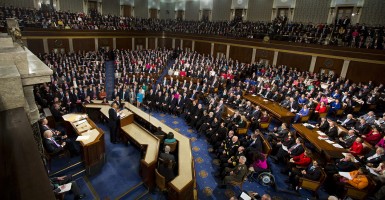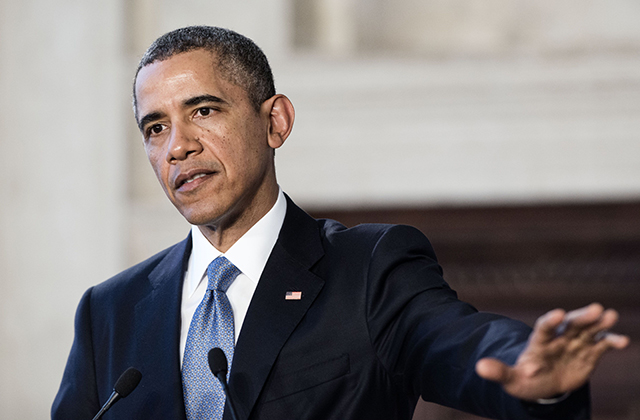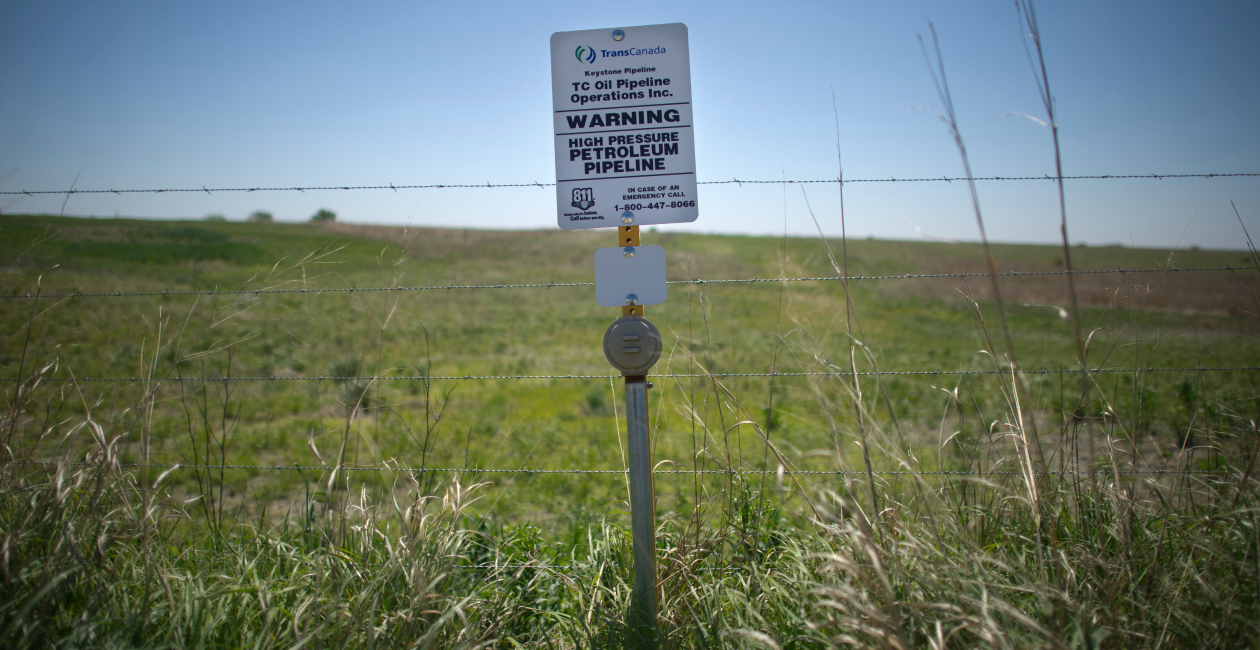One week before President Obama is set to deliver his State of the Union address, lawmakers gathered at The Heritage Foundation for the Conservative Policy Summit to outline their policy roadmap for the 114th Congress.
Hosted by Heritage Action for America, a sister organization of the think tank, the conference ran in conjunction with the release of a 192-page policy agenda for the GOP-controlled House and Senate.
The book, called “Opportunity for All, Favoritism for None,” details the conservative movement’s policy proposals for addressing issues including student loan debt, reforming health care and reshaping the tax code.
“We see the need to progress to a nimble, citizen-centered government where the people have many choices in many areas of their lives, not just the one choice offered by the government,” Heritage Foundation President Jim DeMint said at the summit Monday.
“If we can do it with cell phones and computers, we can do it with health care and education, and especially values,” he said. “Americans must be free to decide what they believe and what they value without government-sponsored intimidation.”
“Americans must be free to decide what they believe and what they value without government-sponsored intimidation,” says @JimDeMint
Several issues discussed at the Conservative Policy Summit ran parallel to the president’s own policy priorities, which he unveiled through a series of “SOTU Spoilers” while traveling to Wayne, Mich., Phoenix, Ariz., and Knoxville, Tenn., last week.
The spoilers outline legislative proposals and executive actions Obama plans to announce during his official State of the Union next week. During the stops, the president emphasized manufacturing, the housing market and education.
The Daily Signal will broadcast the president’s address live next Tuesday with coverage beginning at 9 p.m. ET. The show, which features Heritage Foundation policy experts and outside contributors, will provide viewers with analysis and insight about the president’s policies.
Education
During a speech at Pellissippi State Community College, Obama detailed a plan to make two years of tuition at a community college free for eligible students. The plan would cost $60 billion.
>>> The 10 Ways Ted Cruz Thinks He Can Make Your Life Better
Conservatives, too, have higher education as a cornerstone of their policy agenda. However, conservative lawmakers disagree with reforms that cap student loan repayments and tie federal financial aid to a college’s rating on a government-issued scorecard—a measure introduced by Obama last year.
Instead, Republican lawmakers look to legislation such as the Higher Education Reform and Opportunity (HERO) Act from Rep. Ron DeSantis, R-Fla., and Sen. Mike Lee, R-Utah.
The proposal would reform the accreditation process for colleges and allow states to set up their own systems.
Cybersecurity
As his State of the Union preview continued this week, the president said he plans to lay out new proposals for cybersecurity. During a speech at the Federal Trade Commission on Monday, Obama specifically focused on ways to improve privacy and protect from identity theft. He’ll also outline plans to defend the private sector from cyberattacks and unveil a proposal to expand access to high-speed broadband.
The president’s renewed focus on cybersecurity came just weeks after Sony Pictures was hacked. Then, during Obama’s address at the FTC on Monday, social media accounts for U.S. Central Command were allegedly hacked by possible sympathizers of Islamic State militants.
“As Americans, if we’re going to be connected, then we need to be protected,” Obama said. “As Americans, we shouldn’t have to forfeit our basic privacy when we go online to do our business.”
While the president detailed his plans to lessen Americans’ vulnerability to cybersecurity attacks, Republicans contend that such incursions aren’t an excuse for government intrusion.
“We all want the bad guys to be apprehended,” Rep. Matt Salmon of Arizona said yesterday at the Conservative Policy Summit. “But we’re not willing to trade our freedom for security or a false sense of security.”
In the wake of the recent hacks, politicians have a growing interest in the safety of the Internet. Salmon, though, said Americans should be protected from warrantless monitoring from the government.
Yesterday, he spoke about the need to amend the Electronic Communications Privacy Act. Under current law, the government can access the content of emails, text messages and photos stored on a server for more than 180 days without a warrant. Salmon’s changes would limit that rule.
>>> In 60 Seconds, Watch 2 Tea Party Freshman Share Their Conservative Visions
“If we give away our freedom to protect our freedom, what’s it worth?” he said.
Energy
Though the GOP-controlled 114th Congress has been in session for just one week, Republican lawmakers quickly acted to approve construction and operation of the Keystone XL pipeline.
Project supporters—who include lawmakers on both sides of the aisle—view construction of the pipeline as a crucial step to gaining energy independence. Meanwhile, opponents believe construction of Keystone XL would negatively impact the environment.
The Obama administration issued a veto threat on the legislation.
Now, the president plans to use his executive authority to regulate methane emissions, according to a report from The New York Times. The Environmental Protection Agency plans to release the proposed regulations in the coming months and finalize them in 2016.
Republicans, though, argue government intrusions in the energy market negatively impact it.
To remedy the increased regulations from the EPA and government intervention, Rep. Jeff Duncan, R-S.C., plans to reintroduce the Energy Exploration Production to Achieve National Demand (EXPAND) Act.
The law would, among other things, exclude methane from the definition of “air pollutant” and approve construction of the Keystone XL pipeline.
During a speech at the Conservative Policy Summit Monday, Duncan spoke to the importance of passing the law.
“It’s a truly all-of-the-above energy approach,” he said of the EXPAND Act.
Additionally, the legislation would roll back regulations issued by the EPA, Duncan said.
“We really ought to take a look at the regulatory environment,” he said.
>>> There Hasn’t Been One Since 2001. Can This New Budget Chairman Deliver a Balanced Budget?































